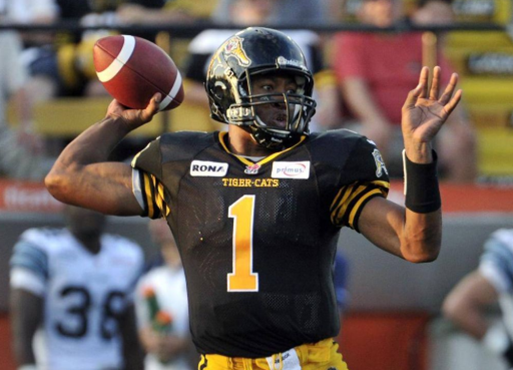As a youth, I often played pick-up football games with my buds. We’d meet in the local park, pick teams, and away we’d go. When it was my turn to be quarterback, I loved calling a ‘long bomb’ passing play. When it went well, my pass was “right on the money”, and my friend caught the ball, in full flight, and raced into the end zone for a touchdown. The communication between us was spot on, we were on the same page, and the results showed it. At that point, we didn’t need a football stadium of cheering fans to make us feel good.
Sport as metaphor
Team sports can serve as a good metaphor for developing communications skills. Whether its’ football, hockey, volleyball, basketball, soccer, etc., someone is sending a message, e.g., ball, to a receiver of that message, a co-player. The football quarterback passes, throws, a football to his tight end. The defenseman passes, slaps, the puck to her forward. The volleyball player passes, sets, the ball for his teammate to spike… Message delivered.
Analyzing the “pass” is an opportunity to learn. Why do some passes work better than others? What are the conditions necessary for a successful pass? How can the passer improve the odds of the receiver, receiving?
Pass to Receive
At a recent conflict management training workshop I did for a local chamber of commerce, I used an activity that I created called ‘Pass to Receive’. I use it to nurture communication skills. A communication breakdown is at the root of many disputes. Here’s how I did this activity:
- I get people into groupings of 3 or 4.
- I tell them – choose a team sport that everyone knows (and preferably, has played), and that involves passing and receiving
- I ask each group to list ways the passer (in their chosen sport) can ensure that his/her message (football, puck, volleyball, etc.) is delivered successfully, to the receiver; e.g., possible ways might include: “I establish eye contact”, “I send the ball to where they are going”, “I get to know their tendencies”…
- I then ask each group to translate 3 of those ways to the workplace context; e.g., possible answers/translations might include: “I get to know each team member, and their interests and preferences”, “I regularly check-in with my team, and don’t automatically assume the effect of my message was as I intended.”, “I actively promote and encourage a sense of play, and improvisation, within mutually agreed-upon boundaries”…
- Volunteers share their individual group insights with the larger group
One of the hardest, if not the hardest, thing to do in interpersonal communications is see things from the other person’s side, their perspective.
In sports, we can see if our pass, message, connected, or not. In most other contexts, it’s not so visual. Regardless, we pass to receive.
Approached with curiosity and learning, our interactions on the sport playing field hold many communication cues for our interpersonal interactions off the playing field, with family, co-workers, neighbours, friends; basically, everyone.
Especially for men
There is another reason to use sport as metaphor in training soft skills, such as communications. Men relate to sport, a lot.
Sport gets most men’s attention. I grew up playing sports, all kinds of sports. Although, I don’t play any team sport these days, my love of sports lingers on. I’m still physically active, in more moderate ways. Being a bit of sports junkie, though, I do vicariously follow my favourite sports teams. Maybe, one day I’ll “grow up”, and move on from spectator sports.
I’m not alone. In his research for his seminal book, Buddy System: Understanding Male Friendships, Dr. Geoffrey Greif (and his team) interviewed a diverse set of 400 men, ranging in age from their 20’s to their 90’s. “Sports-related activities” topped the list of what men actually do when they get together. (By comparison, Greif also interviewed 140 women – sport was further down their list, of activities shared with other women.)
If you want to develop your team’s soft skills, incorporate sport metaphors into your training program. Your team, especially the men, will appreciate it.



Speak Your Mind